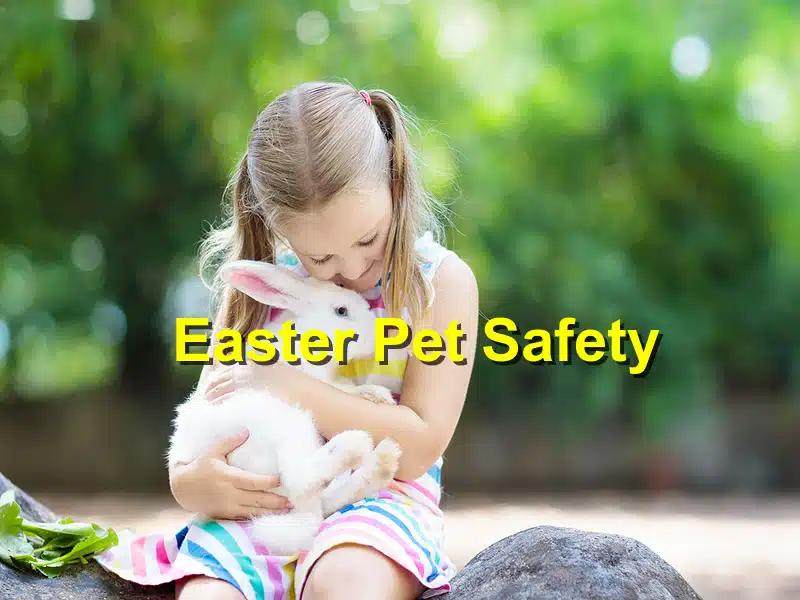As Easter approaches, it’s essential to ensure the safety of your pets by preventing common holiday hazards. Learn about potential risks such as chocolate poisoning, toxic plants, and choking hazards, and take steps to keep your furry friends safe:
- Chocolate Poisoning: Chocolate is a common Easter treat, but it’s highly toxic to dogs and cats. Theobromine and caffeine, two compounds found in chocolate, can cause vomiting, diarrhea, rapid breathing, elevated heart rate, seizures, and even death in pets. Keep chocolate and other sweets out of reach of pets, and educate family members and guests about the dangers of feeding them to animals.
- Toxic Plants: Many plants commonly used for Easter decorations, such as lilies, tulips, daffodils, and hyacinths, are toxic to pets if ingested. Keep Easter lilies and other toxic plants out of your home or securely away from pets, and opt for pet-safe alternatives such as artificial plants or non-toxic flowers.
- Easter Grass: The decorative Easter grass used in gift baskets and Easter decorations can pose a choking hazard or cause intestinal blockages if ingested by pets. Choose alternative fillers such as shredded paper or tissue paper, or keep baskets and decorations containing Easter grass out of reach of curious pets.
- Small Toys and Decorations: Small toys, decorations, and Easter eggs can present choking hazards for pets if swallowed. Keep small objects, including plastic eggs, toys, and decorative items, securely stored and out of reach of pets to prevent accidental ingestion or choking incidents.
- Fatty Foods: Rich, fatty foods commonly served during Easter celebrations, such as ham, lamb, and gravy, can cause digestive upset, pancreatitis, and other health problems in pets. Avoid feeding your pets table scraps or leftovers, and stick to their regular diet to prevent gastrointestinal issues.
- Easter Egg Hunts: If you’re planning an Easter egg hunt for children, be mindful of where you hide the eggs to prevent pets from finding and eating them. Use non-toxic, pet-safe materials for decorating eggs, and supervise children and pets during the hunt to ensure that all eggs are safely retrieved and accounted for.
- Secure Trash Bins: Dispose of Easter-related packaging, food wrappers, and other trash in securely closed trash bins to prevent pets from rummaging through and ingesting harmful substances. Keep trash bins out of reach or use pet-proof lids to prevent access.
By being proactive and taking precautions to prevent common Easter hazards, you can help ensure a safe and enjoyable holiday for your pets. Keep chocolate and toxic plants out of reach, avoid decorative materials that pose choking hazards, and supervise pets around Easter-related activities to minimize the risk of accidents or injuries.
References: GoodDogPeople




